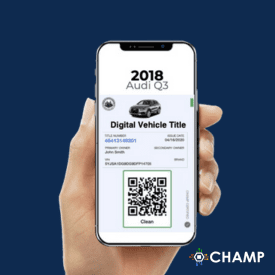As we get ready to turn the page on 2024, it is an exciting time to reflect on how digital innovation has transformed our world. Think about it: over 300 billion emails are sent daily worldwide, compared to just 200 million letters mailed in the U.S. More than 60% of consumers now manage their finances via mobile apps, ditching paper statements altogether. In travel, digital boarding passes are now the standard—convenience winning over paper tickets every time.
For car dealerships, the question is not how digital technology has changed the industry—it is why auto-related government systems have not kept pace. While automotive tech advances rapidly, government services often feel stuck in neutral. For dealership owners and operators, this disconnect creates unique frustrations—and opportunities.
Automotive’s Digital Revolution: Leading the Charge
If you run a dealership today, you are part of a $100 billion annual investment wave in automotive innovation. Your industry has embraced technology to improve efficiency, boost profitability, and meet rising consumer expectations. Online financing platforms, trade-in evaluation tools, and virtual test drives are just a few examples of solutions that do not just save time but elevate every interaction with your customers.
Take connected vehicles, for instance. These cars do not just transport your customers from point A to point B—they deliver real-time updates, predictive maintenance alerts, and advanced safety features. By 2030, connected car technologies are expected to drive $225.6 billion in economic growth (MarketsandMarkets).
The online car-buying revolution has also reshaped how customers interact with dealerships. Platforms like Carvana and CarMax have changed the game. Today, 72% of buyers begin their car-shopping journey online (Cox Automotive), and 73% expect their next vehicle to be connected. To stay competitive, dealerships must meet customers where they are—on their devices.
Government’s Digital Transformation: A Work in Progress
Now, consider the contrast between your dealership’s cutting-edge systems and government processes. After a day of tech-driven operations, you might go home to apply for a title, a registration, a permit, or make another request for a vital record—and suddenly find yourself transported to a world of paper forms, long lines, and outdated systems.

The data tells a frustrating story: only 19% of government interactions are fully digital (Accenture, 2022). While global e-government spending is projected to grow from $410 billion in 2023 to $730 billion by 2030 (World Bank), much of the public sector remains reliant on outdated infrastructure.
That said, there are more jurisdictions adopting emerging technology. States have rolled out initiatives like online voter registration, digital property records, and electronic tax filing. These early efforts prove that progress is possible—if slow.
Bridging the Gap: Addressing the Challenges of Paper Titles with Digital Vehicle Titles
At the crossroads of automotive and government processes, one shared pain point stands out: paper vehicle titles.
If you have ever faced delays due to lost paperwork or manual processing errors, you know how outdated titling systems create unnecessary headaches. Fortunately, change is on the horizon with the introduction of digital vehicle titles.


With CHAMP, service providers can pull data directly from Dealer Management Systems and transmit it digitally to the state with a single click.


States like West Virginia, Kentucky, and Illinois are leading the way by implementing these digital vehicle titling systems for states that directly address daily dealership challenges:
- For dealerships: Faster transactions and reduced errors allow you to focus on sales and customer satisfaction.
- For customers: A smoother, more transparent experience builds trust and loyalty.
- For government agencies: Improved record accuracy, reduced fraud, and streamlined operations free up resources for other priorities.
This public-private collaboration is proof that when sectors work together, everyone benefits.
A Vision for a Digitally Connected Future
In the automotive world, innovation is essential. From AI-powered sales tools to connected vehicles, your industry demonstrates how technology creates value for businesses and customers alike. Now, imagine if government processes matched that efficiency. Digital vehicle titles are just the start, paving the way for collaboration between the private and public sectors.
Looking ahead to 2025, dealerships like yours can play a vital role in advocating for these changes. By bridging the digital divide between automotive innovation and government transformation, we can create a future where technology benefits everyone—from dealerships and customers to state agencies and beyond.



